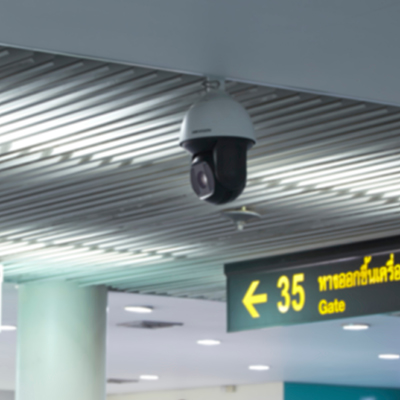This report was written in collaboration with the World Travel & Tourism Council.
What has become clear is that there is no “one size-fits-all” solution and successful initiatives will be grounded in cross-border collaborations and strong partnerships between private companies and government entities
World Travel and Tourism Council’s approach
The World Travel and Tourism Council is in a unique position to establish a unified voice to engage with governments around the world.
Security and travel facilitation are priorities for WTTC, enabling the sustainable growth of the Travel & Tourism sector and enhancing security while offering an unparalleled experience to the traveller. WTTC has taken a collaborative approach, building on efforts of organizations such as the International Air Transport Association (IATA), the International Border Management and Technologies Association (IBMATA), the International Civil Aviation Organization (ICAO), Airport Council International (ACI), the Cruise Lines International Association (CLIA) and the World Economic Forum (WEF), as well as independent efforts by airlines, airports, hotels, car rentals and governments.
Capturing and uploading biometric and biographic data before travel allows border and security agencies to authenticate and pre-clear travellers in advance of arrival. This enhances security across the entire system while relieving pressure on infrastructure & capacity constraints. In exchange, travellers experience reduced cumbersome checks and queues at ports and airports.
Opportunities
Technological advances enable verified digital identities that use biometrics to confirm with high certainty the identity of a user. Applying these solutions to the Travel & Tourism sector offers significant benefits. Verified identities enable the secure, seamless movement and management of travellers across the air and non-air journeys. Utilizing traveller biographic, biometric, loyalty, credit card, travel history, proof of immunity or vaccine and other personal information, will allow governments and travel providers to move the traveller more efficiently and safely through journey touchpoints. Travellers will no longer be required to present and verify their identity, relevant travel (e.g. recently visited countries) and medical history (e.g. vaccine) at multiple touchpoints. The result reduces fraud and allows for the movement of more travellers securely and efficiently through existing infrastructure and easing resource requirements.
Five principles of success
The Travel & Tourism sector is at a critical point where biometric digital identity solutions are being designed and developed to serve travelers across air and non-air touchpoints.
The best practices contained herein are built on a foundation of five core principles:
- Public/private sector collaboration
- Data collection and sharing
- Data privacy
- Interoperability
- Customer-first by design
Overview of best practice & recommendations
This paper lays out several best practice recommendations for biometric-enabled digital identities and their use across the end-to-end traveler journey. While WTTC recognizes the long path that leads to the end goal, a long-term vision and supporting best practices are the guide poles for each stakeholder.
A summary of the best practices for a successful global SSTJ program, discussed herein, are:
- Travelers create a single digital identity containing their biographic data and any additional information required for identity establishment and verification. This is used across all stakeholders, public and private, in the traveler’s journey
- Allow travelers to enroll early in the traveler journey, so they can use their digital identity across the end-to-end journey
- Digital identity management is done in a decentralized manner, where the traveler maintains and controls access to their data
- Traveler’s digital identity data is governed by a globally agreed-upon set of standards, allowing for interoperability across governments and all sectors of the Travel & Tourism sector
- Privacy standards are continually developed and enhanced with guidelines to ensure they are of the highest quality
Read more about this report here.







